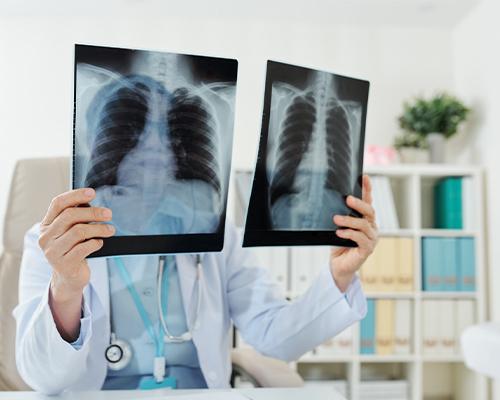
Understanding Stage 4 Lung Cancer: Symptoms, Treatments, and Prognosis
Lung cancer is one of the most common and deadliest forms of cancer, with stage 4 being the most advanced and difficult to treat. In this article, we will explore the symptoms, treatments, and prognosis for stage 4 lung cancer, and provide a comprehensive understanding of this devastating disease.
Symptoms of Stage 4 Lung Cancer
Once lung cancer reaches stage 4, it has spread from the lungs to other parts of the body, such as the liver, bones, or brain. This can result in a wide range of symptoms, including:
– Persistent cough
– Chest pain
– Shortness of breath
– Wheezing
– Unintentional weight loss
– Fatigue
– Bone pain
– Headaches
– Neurological symptoms (such as weakness or numbness)
It is important to note that some of these symptoms can also be caused by other conditions, so it is crucial to consult a healthcare professional for a proper diagnosis if you are experiencing any of these symptoms.
Treatments for Stage 4 Lung Cancer
The treatment of stage 4 lung cancer is challenging, as the cancer has spread to other parts of the body. However, there are several treatment options that can help manage the symptoms and potentially prolong life.
1. Chemotherapy: Chemotherapy is a common treatment for stage 4 lung cancer, and involves the use of powerful drugs to kill cancer cells and prevent them from growing and spreading.
2. Radiation therapy: This treatment uses high-energy X-rays to destroy cancer cells and shrink tumors. It can be used to relieve symptoms and slow the growth of the cancer.
3. Targeted therapy: Targeted therapy drugs are designed to specifically target the genetic mutations that drive the growth of cancer cells. This type of treatment can be particularly effective in cases where the cancer has spread to other parts of the body.
4. Immunotherapy: Immunotherapy works by harnessing the body’s own immune system to fight cancer. It can be an effective treatment for some patients with advanced lung cancer.
5. Palliative care: Palliative care focuses on providing relief from the symptoms and stress of a serious illness like cancer. It can help improve quality of life for patients with stage 4 lung cancer.
Prognosis for Stage 4 Lung Cancer
The prognosis for patients with stage 4 lung cancer is generally poor, as the cancer is very advanced and has spread to other parts of the body. The 5-year survival rate for stage 4 lung cancer is around 4%, meaning that only 4 out of 100 people with this stage of the disease will survive for 5 years or more after diagnosis.
However, it is important to note that every patient is different, and the prognosis can vary depending on factors such as the patient’s overall health, the type of lung cancer, and the treatments received. Some patients may respond well to treatment and live for many years with stage 4 lung cancer, while others may have a more aggressive form of the disease and see a rapid decline in health.
The Importance of Early Detection and Prevention
Early detection is crucial for improving the prognosis of lung cancer, as the disease is much more treatable when caught in its early stages. This is why it is important for individuals at high risk of lung cancer, such as smokers and former smokers, to undergo regular screening for the disease.
Prevention is also key in reducing the risk of developing lung cancer. Avoiding tobacco smoke, both first-hand and second-hand, is the most important step in preventing lung cancer. Additionally, reducing exposure to radon, a naturally occurring gas that can cause lung cancer, and avoiding exposure to carcinogens such as asbestos and diesel exhaust can help lower the risk of developing the disease.
In conclusion, stage 4 lung cancer is a serious and difficult-to-treat disease that often comes with a poor prognosis. However, there are treatment options available that can help manage the symptoms and potentially prolong life. It is important for individuals at high risk of lung cancer to undergo regular screening for the disease, and for everyone to take steps to reduce their risk of developing this devastating disease. By raising awareness of the symptoms, treatments, and prognosis of stage 4 lung cancer, we can work towards improving outcomes for those affected by this disease.

















